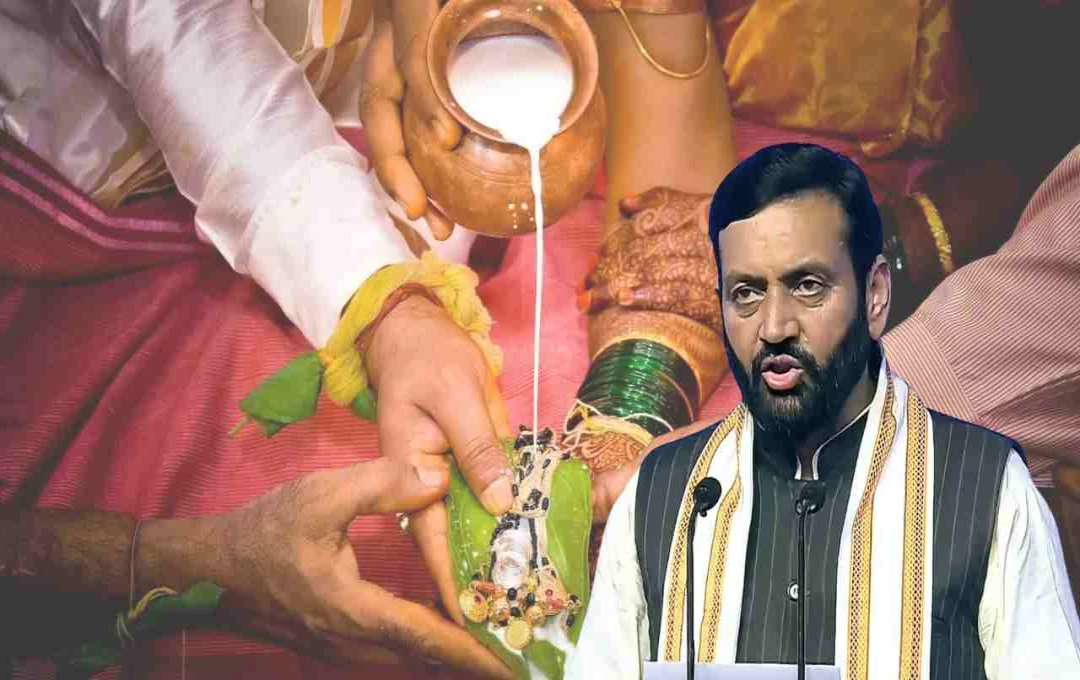The Haryana government has adopted a strict stance regarding cases related to religious conversion in the state. The implementation of the law, enacted nearly three years ago, is now being expedited. This decision has been taken specifically to curb incidents of concealing religion for the purpose of marriage.
Chandigarh: The Haryana government has decided to strictly implement the 'Haryana Prevention of Unlawful Conversion of Religion Act and Rules 2022' in the state. Under this law, any individual who marries by concealing their religion, the marriage will be considered invalid. However, children born from such a marriage will have full legal recognition and the right to inherit property.
This decision comes after the guidelines issued by the Home Department. Haryana's Additional Chief Secretary, Sumita Mishra, has directed all district Deputy Commissioners, Police Commissioners, and senior police officers to ensure strict compliance with this law.
Purpose of the Law: To Prevent Fraud, Not Religious Freedom
Sumita Mishra has clarified that the aim of this law is not to curb the religious freedom of any individual, but its main objective is to prevent incidents of forced or fraudulent conversion in the name of marriage. She stated that if any person uses deceit, pressure, enticement, or undue influence to convert someone's religion, this law allows for strict action against them. Particularly, activities involving concealing religion in sensitive relationships like marriage will be considered against the constitution and social values.

Marriage by Concealing Religion: Marriage Invalid
According to the law, if any person knowingly conceals their religion and marries, such a marriage will not be considered valid. However, children born from it will receive full legal recognition. They will be able to inherit property of the mother or father under inheritance laws. This provision reflects a balanced approach from a social and legal perspective, which prevents the fraudulent aspect of marriage but fully protects the rights of the children.
In this Act, a person found guilty can be sentenced to imprisonment for three to ten years and a fine of three lakh to five lakh rupees can also be imposed. This punishment is not only for the individual but can also be applied to those conducting the religious rituals if they have completed the conversion process without notification.
Mandatory to Provide Information Before Religious Conversion

- It is mandatory for a person converting religion to give prior notice to the Deputy Commissioner of the concerned district.
- Priests or Maulvis organizing religious rituals or programs related to religious conversion must also provide information.
- A 30-day objection period has been set after the notification, in which any person can raise an objection to this religious conversion.
- The purpose of this arrangement is to ensure that religious conversion is voluntary, transparent, and without pressure.
Experts believe that this law prioritizes the safety of women. It has often been seen that some people resort to false identities for the purpose of marriage, which leads to serious social and legal disputes after marriage. This law will help prevent incidents where religious deceit, forced conversion, and family instability arise in the name of marriage. Through this, transparency and trust will be promoted in the society.










